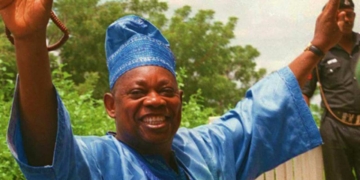- N20 was issued for the first time in polymer substrate
- Atleast 50 people feared dead when a ferry sank on the Nun River in Bayelsa
- Over 50 persons killed in religious violence in Aba, Abia State
According to Hermann Hesse, without words, without writing and without books there would be no history, there could be no concept of humanity.
History plays a very important role. It refreshes our memory and illuminates our souls. When we look back or reflect on the past, it’s not because we are happy or excited about the tragic events or stories; rather, we do it for educational purpose.
In an effort to close the gap in historical documentation and for educational purposes, WITHIN NIGERIA has highlighted three notable historical events that occurred on February 28th in Nigeria.
N20 was issued for the first time in polymer substrate
On this date, 28th of February in 2007, N20 was issued for the first time in polymer substrate as part of the economic reforms.
The ₦50, ₦10 and ₦5 banknotes; as well as ₦1 and 50K coins were reissued in new designs, and the ₦2 coin was introduced.
Atleast 50 people feared dead when a ferry sank on the Nun River in Bayelsa
On this date, 28th of February in 2007, no fewer than 50 people feared dead when a ferry sank on the Nun River in the southern state of Bayelsa.
According to Nigerian authorities, at least 60 people have died in a boat accident on the Niger River and that 83 missing passengers are also feared dead.
The boat with more than 160 passengers, including many children and women, sank after hitting an object and breaking up Wednesday while traveling along Nigeria’s largest river in Kebbi state, in the northwestern part of the country.
Emergency workers continued recovery efforts Friday. Bodies were carried from the team’s boat near the river bank to a waiting ambulance. Workers recovered 55 bodies on Thursday to bring the death toll to 60 so far, according to Sani Dododo, chairman of the Kebbi State Emergency Management Agency.
“We hope to recover more bodies Friday,” he said, adding that he fears the 83 passengers still missing might not be found alive. Twenty-two passengers were rescued shortly after the accident, but no other person has been rescued alive since then. Among the dead was a baby less than one year old.
Recovery efforts are slow because the river is currently high and moving swiftly, making conditions dangerous for the divers and workers in boats, Dododo said. It was unclear what caused the boat to break up as it was traveling from Nigeria’s Niger state to the town of Wara in Kebbi state.
Over 50 persons killed in religious violence in Aba, Abia State
On this date, 28th of February in 2000, over 50 individuals were reportedly killed in religious violence in the town of Aba in southeastern Nigeria.
Residents of the southeastern city of Aba said the violence pitted local Christian Ibos against Hausa-speaking immigrants from Muslim northern Nigeria.
“In Aba itself I counted over 50 bodies. Many were burned in the street and angry youths were chanting war songs and dancing round the city,” one witness said.
The violence has uncomfortable parallels with the run up to civil war in 1967, when the killing of thousands of Ibos in northern Nigeria and the sub sequent flight of tens of thousands more helped trigger the south-east’s bid to secede.
An estimated 1m people died before the breakaway state of Biafra was defeated by forces from the rest of the diverse West African country.
An upsurge of ethnic and religious conflict since President Olusegun Obasanjo took office last May to end 15 years of military rule has again thrown doubt over the future of the country, which, with a population of 108m, is Africa’s most populous.
Security forces have been hard pressed to deal with the killings. Residents said the riots were a direct response to the violence in the north, which erupted last Monday at a protest by Christians against Muslim demands for the introduction of Islamic sharia law in the state of Kaduna.
“There was a meeting last night among the traders and it was said that Ibo traders were killed in the Kaduna riots. So this morning they summoned the Hausa community to leave the city, saying that they could not guarantee their safety,” one southeastern resident said.
Rumours of deaths in Aba triggered panic in the north’s biggest city, Kano, where there is a large Ibo community. Shops and markets closed and residents said hundreds of southerners took refuge in military barracks.





Discussion about this post